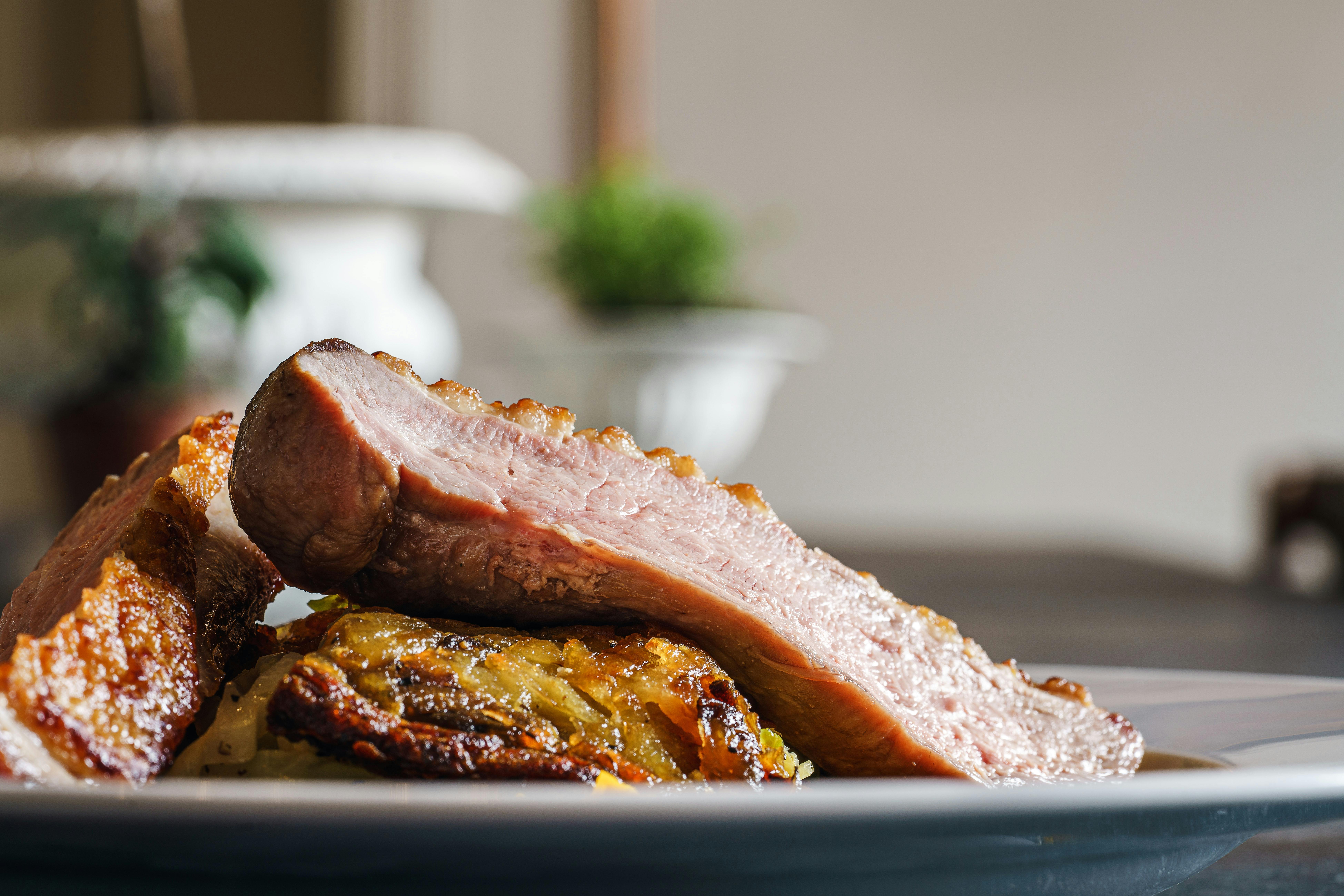
By Wag! Staff
Published: 06/03/2021, edited: 06/14/2024
More articles by Wag! Staff
Save on pet insurance for your pet
You don't have to choose between your pet and your wallet when it comes to expensive vet visits. Prepare ahead of time for unexpected vet bills by finding the pawfect pet insurance.
Overview
Think of meaty dog food flavors and those that may first come to mind are chicken, beef or turkey. But, there’s another meat that delivers an excellent protein source — and that’s duck.
If you shop around for your dog’s food, you’ll find duck-based recipes from a number of leading and highly recommended dog food brands, including Nulo, Merrick and Natural Balance. Where duck was once a rare ingredient in dog food, it’s now widely and readily available. You can also buy plenty of duck-flavored treats, too.
Shop for duck flavor dog food on Chewy:
- Natural Balance Limited Ingredient Reserve Grain-Free Duck & Potato Dog Food
- Nulo Freestyle Duck Recipe with Pears
- Merrick Grain-Free Real Duck & Sweet Potato
So, the answer to the often-asked question ‘can dogs eat duck’? is an obvious and resounding yes. Not only that, duck contains a lot of healthy nutrients packed into a complete protein. It’s also higher in iron in comparison to chicken and turkey (duck eggs are also high in iron; we’ll get these later).
Let’s take a more detailed look at the benefits of feeding duck to your dog, including duck eggs, duck feet and raw duck. For example, can dogs eat duck bones? We’ll find out.
What’s in Duck?
Of course, duck is tasty — it’s a meat your dog is almost certain to enjoy. But, it’s also a type of meat that’s full of important nutrients. Though duck can have a high amount of fat between the skin and muscle, it’s healthy unsaturated fat that contains essential fatty acids.
Besides being an excellent source of protein, duck meat also includes:
- Omega-3 and omega-6 fatty acids for a healthy heart, immune system, digestive system, skin and coat, and muscle condition.
- Vitamin A for eye and skin health, and immune function.
- Vitamin B-complex, particularly niacin for healthy digestion, brain function and hormone production, and B-12 for nerve function and red blood cell production.
- Vitamin C for a strong immune system, healthy skin and bones, and as an antioxidant.
- Selenium, another antioxidant that fights inflammation, and supports immune and thyroid function.
- Copper for bone formation, nerve protection, and iron metabolization.
- Iron for red blood cell production and oxygen transport throughout the body.
- Zinc for boosting cognitive function, hormone production, and healthy skin, coat, and vision.
Duck and food allergies
One of the reasons pet parents might choose to opt for duck flavored dog food is if their pup has experienced an intolerance to more commonly-fed meats like chicken and beef.
While duck in itself isn’t hypoallergenic, it can be considered a novel protein, or a protein source that most dogs aren’t normally exposed to. Duck can be a viable alternative protein for a dog who has developed a food allergy to one of the standard proteins (like salmon, as well as beef and chicken), either as part of a food elimination trial, or as an ongoing meal choice.
Duck can also be a great addition to a rotational feeding diet, which is the practice of varying up the foods and proteins your dog eats to reduce the chance of your pup developing an allergy to one specific protein. This is based on the debated theory that consuming the same protein every day for years, or even a lifetime, could actually cause an allergy to that protein.
Can dogs eat raw duck?
With some pet parents choosing to feed their dog a raw food diet, it’s logical to ask, ‘can dogs eat raw duck as well as raw chicken, beef and other meats?’ The answer to that is yes, though if you’re switching your dog to a raw food diet for the first time, it’s advisable to speak to your vet first.
Bear in mind that duck meat can be fatty; when it cooks, most of that fat will render down but in raw format it might still be present. You can trim it off before serving raw duck to your dog, but it’s perhaps best to avoid feeding this if your dog has pancreatitis as this condition requires a low-fat diet. You can see our recommendations for the best dog food for dogs with pancreatitis here.
Bear in mind that duck meat can be fatty; when it cooks, most of that fat will render down but in raw format it might still be present. You can trim it off before serving raw duck to your dog, but it’s perhaps best to avoid feeding this if your dog has pancreatitis as this condition requires a low-fat diet. You can see our recommendations for the best dog food for dogs with pancreatitis here.
Our guide to the best raw dog food is here, with We Feed Raw among those that have a duck recipe within their range.
Can dogs eat duck bones?
We know dogs love gnawing and chewing on bones, but not all bones are the same and as a pet parent, you need to be vigilant when it comes to what you allow them to chomp on. As a general rule, you should never give your dog a cooked bone, as these could easily splinter, causing a potential choking hazard. Always choose raw bones, as these are denser and harder.
So, more specifically, can dogs eat duck bones? We’d advise no, even raw. Duck bones are so small that they can get lodged or caught in your dog’s throat. We’d definitely avoid giving dogs duck bones.
Can dogs eat duck feet?
Yes — dogs can eat duck feet. While they may not look particularly appealing to us pet parents, duck feet are a great source of a series of nutrients, including calcium and zinc. They’re rich in fiber, too, and also provide glucosamine and chondroitin which can help to manage joint issues. If your dog is living with arthritis, duck feet can therefore provide some nutritional benefit.
Give your dog raw duck feet under supervision. The bones in the feet are so small that they’re more easily digestible than larger duck bones; your dog should just crunch through them.
However, if you’re wary of feeding your dog raw duck feet, you can buy smoked and dried duck feet from many retailers as a treat.
Give your dog raw duck feet under supervision. The bones in the feet are so small that they’re more easily digestible than larger duck bones; your dog should just crunch through them.
However, if you’re wary of feeding your dog raw duck feet, you can buy smoked and dried duck feet from many retailers as a treat.
Can dogs eat duck eggs?
Dogs can eat eggs, and duck eggs are no different. Eggs are high in protein — though they’re high in cholesterol, too, which isn’t so good — so, as with most ‘human’ food, should be given to dogs in moderation. If you haven’t given your dog eggs before, observe them after they’ve eaten to be mindful of any potential allergies.
Can dogs eat duck eggs raw? They can, though raw eggs (like other raw foods) will often be associated with the risk of salmonella. For peace of mind, we’d recommended giving your dog a small portion of cooked duck eggs, from time to time. A moderate serving of scrambled egg is perfect.
You may also like
